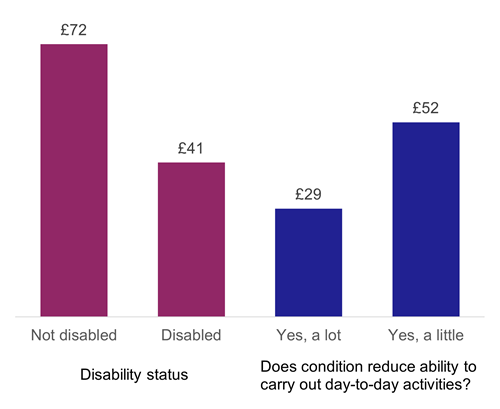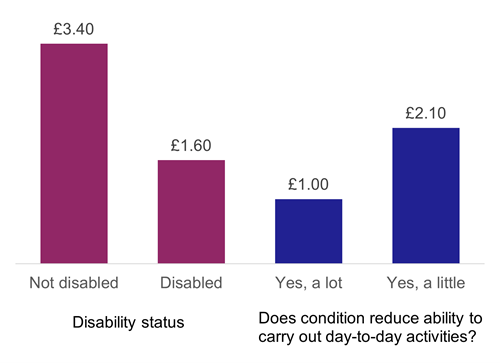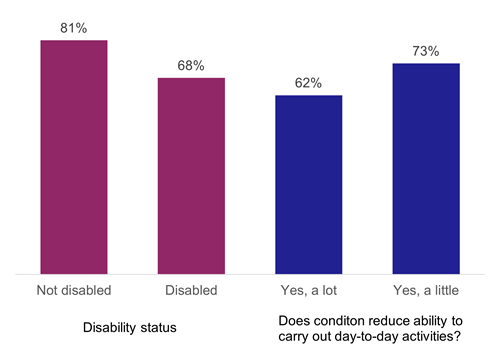Travel cost and affordability
Questions on transport cost and affordability were introduced in the Scottish Household survey in 2021. There were significant restrictions due to COVID-19 in that year, and fuel prices rose in 2022 after this data was collected.
Expenditure on car fuel
Of those who spent on car fuel, average spend was less for disabled people, with an average (mean) spend of £77 a month compared to £98 for those who are not disabled.
47% of disabled people do not buy car fuel, compared to 27% for those not disabled. This rises to 60% of those who have a condition that limits day to day activity. When those who pay nothing are considered, the gap between the mean spent is greater, with disabled people spending an average of £41 and people who are not disabled spending £72. [Shown in Figure 58]

Figure 58: Amount spent on fuel in the past month (including those who do not drive), by whether adult is disabled and whether their condition limits their ability to carry out day-to-day tasks, 2021
Expenditure on public transport
Most people had spent nothing for public transport in the past week, with 89% of those disabled paying nothing compared to 82% of those not disabled. Average (mean) spending per week was lower for disabled people, at £1.60 compared to £3.40 [Shown in Figure 59]. These figures are likely to have been affected by COVID-19 related restrictions in place in 2021.

Figure 59: Average (mean) expenditure on public transport, by whether adult is disabled and whether their condition limits their ability to carry out day-to-day tasks, 2021
Affordability of transport
Disabled people were less likely to consider that their transport costs were affordable. 68% of disabled people said their costs were very or fairly easy to afford, compared to 81% for people who were not disabled. Only 62% of those disabled people with a condition that reduced their ability to carry out activities considered costs very or fairly easy to afford. The survey was conducted over a time period before fuel prices and general inflation reached a peak in 2022. [shown in Figure 60 below]
Lower average incomes are likely to have an effect on affordability for disabled people. There may also have been substantial spending on taxis for some disabled people, but this is not recorded by the survey.

Figure 60: Percentage who thought transport costs were very or fairly easy to afford, by whether adult is disabled, and whether a long-term health condition affects their day-to-day activities, 2021